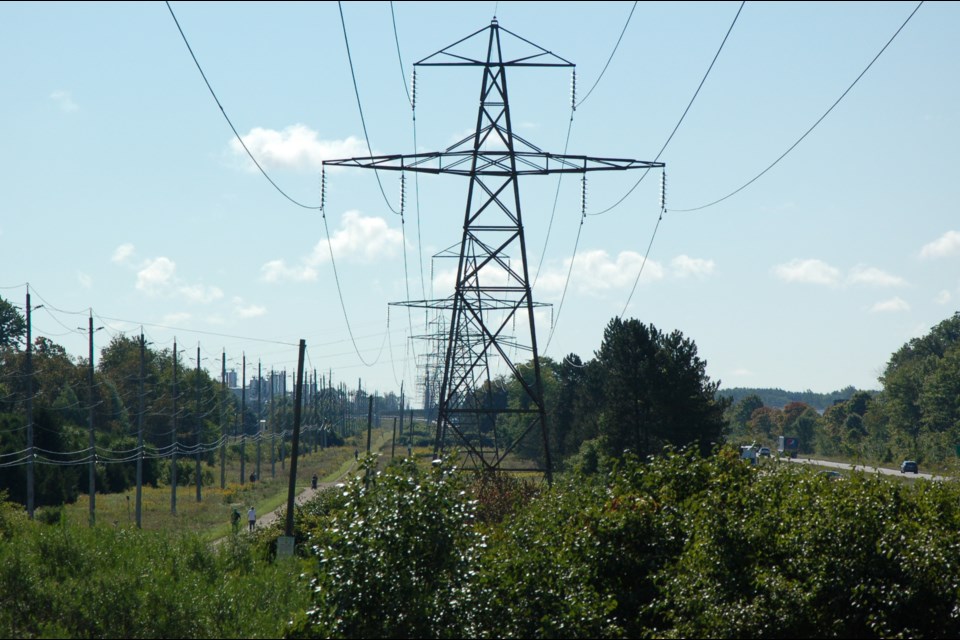Can nuclear energy help meet our climate goals? The answer isn't simple.
With more communities and countries looking at net-zero emissions targets, nuclear power was one of the main a local podcast held a discussion about the use of nuclear power to achieve this goal.
Recently, the weekly Breezy Breakfast radio hour discussion focused on whether nuclear power should be included in Ontario’s energy use. The conversation comes as more communities across the province and around the world talk about aiming for net-zero emissions.
Evan Ferrari, executive director of eMERGE Guelph Sustainability, said the City of Guelph is looking to use completely renewable energy by 2050.
“The major issues when we’re decarbonizing is how can we reduce, what’s the cost and what’s the time frame we’re looking at?” said Ferrari to participants.
Ferrari was one of the speakers for the event. Joining him Jean-Claude Stranart, principal engineer at Candu Energy Inc., part of SNC Lavalin, and Goretty Dias, associate professor of the University of Waterloo School for the Environment.
Stranart started the conversation talking about the nuclear industry and how it can help maintain current energy consumption levels. He said Ontario currently uses nuclear power in around 60 per cent of its mixed energy consumption. Within the industry, there are conversations about developing more small nuclear reactors (SNRs)in the future to meet demand.
“There’s a need to provide a level of life that is targeted by most of the world, and that inherently means a higher energy density usage, and so the question is, how do we get to the level of energy that is needed by societies in general, as well as doing it in a way that has a minimum impact long term and is sustainable," said Stranart, adding it should remain a contributor to the mix to maintain a modern, dense society.
The design of nuclear power plants also factors in safety concerns and inefficiencies, adds Stranart. Currently, he said plants have been designed with the capability to go up and down during peak hours.
“We are talking about a system that has a lifetime of about 80 productive years and about 90 operational years, that’s in the current, Candu operations of nuclear plants," said Stranart.
Next, Ferrari spoke about the drawbacks of using more nuclear energy to achieve net-zero emissions. Sharing a cost comparison analysis of Ontario electricity options done by Ontario Clean Air Alliance Research in October, Ferrari points out nuclear power is listed as one of the most expensive options for producing energy, creating the lowest number of jobs.
“Nuclear has the longest time frames, and SNRs at best, people have been saying, maybe we’ll have one (nuclear power plant) up by 2030," said Ferrari.
Ferrari added nuclear energy still requires a lot of investment, diverting from the investment into renewable energy.
“They (nuclear power) rely heavily on government loans and subsidies, right now, there’s massive amounts of cash going to the SNR industry, inaccessible to a much broader range of potential purchasers and individuals.” said Ferrari.
The third and final speaker, Dias, took a different approach in the conversation around nuclear energy to talk about the environmental and social drawbacks of replacing fossil fuels, by looking at the social and environmental costs of producing batteries for electric vehicles.
"The thing with a transition to a low carbon economy, is that we're going to need a lot more metals and a lot more rare earth metals, in order to be able to do that," said Dias. "Certainly, we're going to need copper, which is becoming a bit of a problem to attain, and we'll also need lithium."
Dias also points out the amount of minerals needed in terms of nickel and cobalt outweighs what is in reserves. Setting up mines to dig up the rare metals can also require lots of energy and draw concerns about the impact on farmers and the environment.
"We're going to need a lot of energy to produce these batteries, so it's not just a problem for the nuclear, that we're going to need a lot of energy as Jean mentioned, for the concrete and everything else, we're going to have a lot of carbon emissions as well, and we don't know the scale of that," said Dias.
"That leads to our consumption of energy, while I agree with Evan, energy efficiency is so, so important, but we have to look at our energy consumption above everything else."
While the three speakers shared different perspectives on the use of nuclear energy, the consensus was each option came with problems and trade-offs.
“I still think conservation, energy efficiency and reducing what we use is the best solution,” said Dias.



